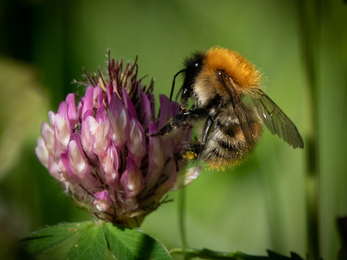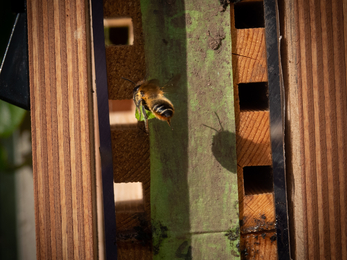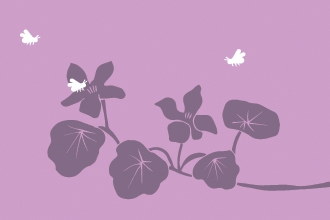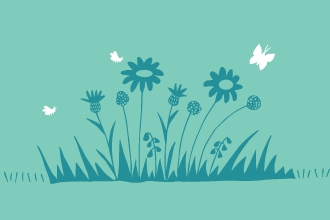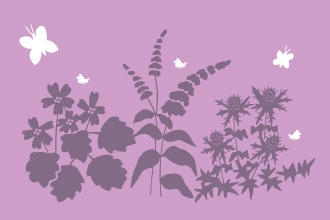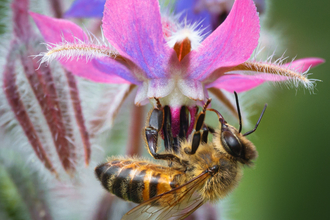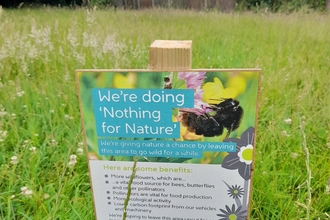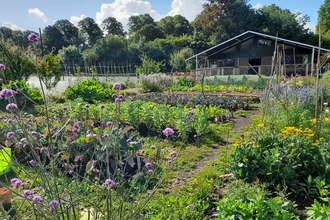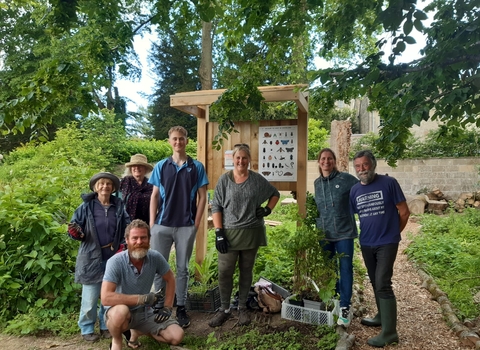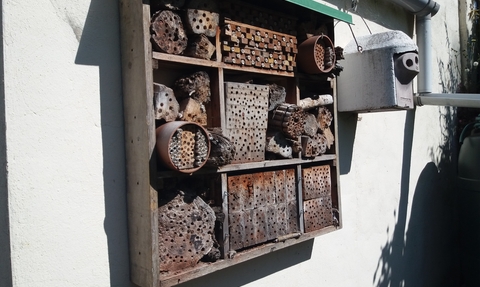
(C) David Ward
Helping Bees with Team Wilder
Bee Kind
Did you know that bees provide us with every third mouthful of food we eat? Without bees, we would be unable to grow lots of our favourite foods, including tomatoes, blueberries, green beans and grain to feed animals. As well as being fascinating insects, these creatures are a vital part of our world and need our help!
Why are bees under threat?
- A loss of habitat and habitat fragmentation
- A large reduction in plant species diversity
- Pesticide use
- Climate change
Bees rely on a diverse range of landscapes to find food and shelter, including meadows, hedgerows, field margins, urban gardens and your local park. They all need to be connected for the future survival of bees.
Where should I put a Bee Hotel?
The majority of bees in our country are solitary bees, so do not live in a colony. You could create a bee hotel in your garden, local area, school or workplace and offer them 5 star accommodation! Start small, see some tried and tested bee hotels below.
TIP: Choose a south facing/full sun spot for your bee hotel. Underneath pollinator-friendly plants also works well.
Vaughn Matthews
It’s easier and cheaper than you think – David Ward said that his first attempt was quite small and not successful, so he tried a larger bee hotel second time around. It did not work right away, but after a few attempts it became very popular with the bees. He tried using cardboard tubes, but the bees preferred drilled wooden blocks.
TIP: Give your bee hotel different sized holes on untreated wood or clay, with plenty of hollow stems of different diameters (2-10mm). A good tip is to make sure your clay bee hotel is protected from the rain.
I would recommend such a project to any back garden wildlife enthusiast!
PS I have never been stung!
Avon Wildlife Trust
Which bee hotels work the best?
Get some inspiration from the gallery below for tried and tested bee hotels. Small and large, cheap and expensive bee hotels are shown below from local people in Avon.
Rhiannon Doherty
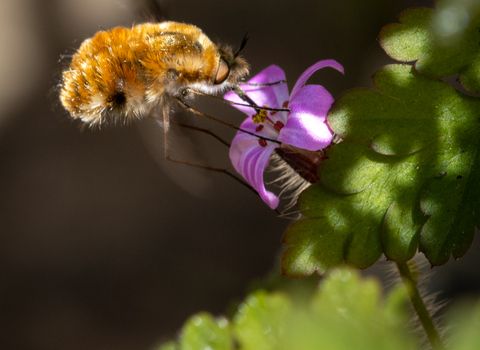
George Cook (C)
Create Space for Bees
Bee friendly! It is easy to take action for Bees:
- Make a bee hotel
- Grow bee friendly wild flowers
- Have a wild patch
- Learn more about bees
- Notice & protect your local spaces
Wildlife Friendly Gardening for Bees
Planting nectar and pollen-rich flowers, especially native wildflowers will keep our bees buzzing. Also by taking part in campaigns such as #NoMowMay in your garden, long and short grasses create mini meadow. You can allow some or all of your garden to go wild.
The Grow Wilder nursery has many pollinator-friendly wildflowers for sale, you can see them on display around the site, pick up some advice and also see many examples of bee hotels.
TIP: Bees like native wildflowers
HOW TO'S:
The Best Plants for Bees How to Attract Bumblebees
Mini Meadows: real pictures Wildlife Gardening
Learn more about Bees
Did you know there were over 250 species of Bee in the UK? Learn more about Bees.
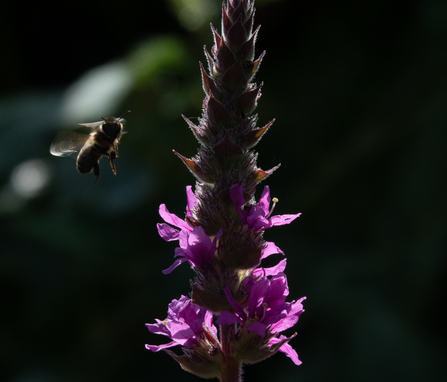
Stephanie Chadwick
- Download the iNaturalist app and you be able to identify your hairy-footed flower bee from your red mason bee! You’ll also be contributing data for use by scientists and researchers. The free app is child friendly and identifies, maps and shares observations of bees and all biodiversity on your doorstep.
- Join local wildlife groups to increase and share your knowledge about bees.
- Learn more about taking action for the most important creatures on the planet - insects.
By having a Bee hotel in your garden or bee friendly plants, you will start to notice which bees are attracted to your garden or outdoor space. Don't worry about getting it wrong first time around, keep trying!
Local community spaces
There are many opportunities to increase wildlife friendly habitats by not mowing grass verges, open spaces and on edges of parks. Local community groups also have the power to campaign to protect local spaces.
We work with B-Lines, set up by buglife, to connect pollinator projects around the UK, to create a series of ‘insect pathways’. Plus initiatives such as the ‘Bee Bold Awards’ will inspire local businesses to take action for pollinators.
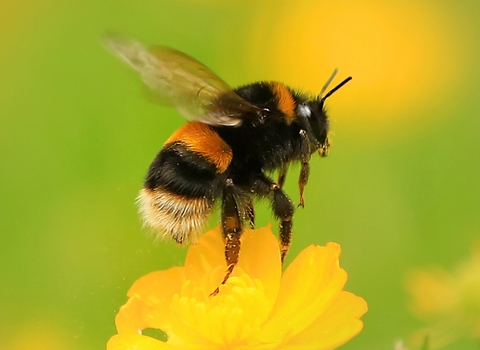
Buff-tailed BumbleBee © Jon Hawkins Surrey Hills Photography
Be part of Team Wilder
All actions for nature collectively add up and creates life for people and wildlife.
Share your actions for nature, like Tom by sharing and tagging @avonwt on social media and
Log your actions for nature on the map

